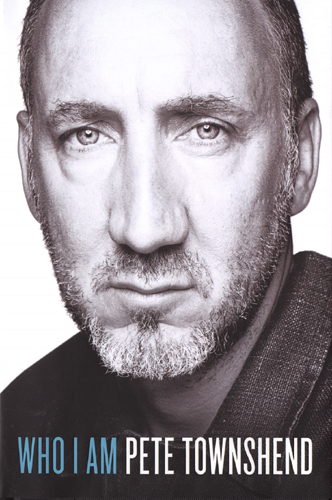Videos by American Songwriter
Who I Am: A Memoir
Pete Townshend
(Harper)
Rating: 4 stars
In the final verse of “The Seeker,” Pete Townshend declares: “I’m looking for me/You’re looking for you/We’re looking in at each other/And we don’t know what to do.” Forever restless, always probing—sometimes angrily, sometimes resignedly—Townshend remains ever the seeker, the spiritual pilgrim, searching for the keys to his own self-identity as well as the paths to meaning in life. Because Townshend so brutally exposes his soul, psyche, and spirit in a voice so compelling that we cannot help but listen, his brilliant memoir outshines the numerous tales of excess and ego that various musicians have published in the last few months.
Not just another rock star memoir filled with gossip about groupies and drugs, Townshend’s thoughtful ruminations about art, music, and his own spiritual awakenings under Meher Baba carry us through the teenage wasteland of the rock and roll life as he probes deeply and searches intently and intensely to discover the facets of the book’s title.
No memoir would be complete without details about family life and early years, and Townshend chronicles directly and forthrightly his life from his childhood in West London, including the sexual abuse at the hands of his grandmother’s lovers, and his years at Ealing Art College, where he had dreams of becoming a sculptor and graphic designer, to his love of the Everly Brothers, and his dislike of Elvis, his invention of the Marshall stack, feedback and the “concept” album, the Who’s set at Woodstock, and their induction into the Rock and Roll Hall of Fame. Afraid of being upstaged by Jimi Hendrix and Hendrix’s stagecraft, Townshend once insured that the Who play the first set so that the crowd would remember their antics. Townshend also reveals a little known—except to die-hard fans—chapter of his life as an editor at the British publishing house, Faber & Faber, where he worked with T.S. Eliot’s widow, Valerie, among other famous literary personalities, and where he commissioned several books, including Charles Shaar Murray’s book about Hendrix, Crosstown Traffic, and where he published his own book of short stories, Horse’s Neck.
However, the details of Townshend’s life are just a backdrop for his poignant, movingly written, and unrelenting self-reflection about life, love, music, family, and death. Townshend concludes with words of advice he wrote to himself years ago but which resonate in his soul even now: “you have a good heart… life can be hard …you have a brilliant mind and a brilliant imagination… respect yourself; try to remember that not everything in life can be perfect… enjoy life.”














Leave a Reply
Only members can comment. Become a member. Already a member? Log in.